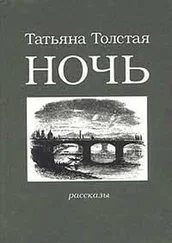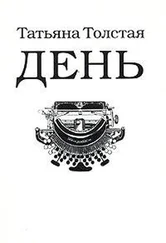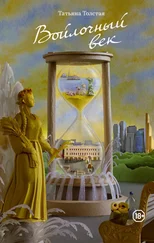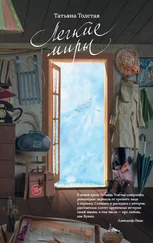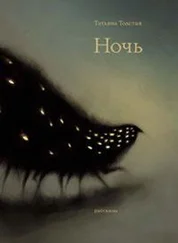What lovely words! But having made my way into the chapel, I can’t see a thing. Perhaps Muratov’s guide illuminated the church with a torch for him, but now it’s simply dark in here, and what little light can seep through the windows is seemingly blocked by a wall of sightseer backs. The masses are densely and stubbornly packed, elbow to elbow. Someone should put a coin in that lighting box, but no one seems to be in a rush, everyone is waiting for the other guy to pay. I’m not in a hurry, either. “I’ve done it many times before” is my excuse to myself. “Let others do it.” A minute passes in the stifling dark. And another. I won’t budge, each one of us is thinking. Darkness pushes down from above. It smells of mice, mold, and something else, quite ancient—as if time itself were emanating this odor. Then human smells begin to waft—aging flesh, perfume, mints, sweat, cigarettes. That’s how it will be immediately after death: darkness, someone’s breath and heaving in the dark, sweltering heat, expectation, a subtle dislike for fellow travelers, a polite decisiveness not to show it, bits of selfishness, stubbornness, hope, doubt. The waiting room halfway to paradise—where else? “Never have I seen anything more beautiful (see the reverse)! Makes me want to cry!” wrote father from heaven.
At last there is a recognizable pop —somebody finally ponied up, and, as before, for a few moments everything is illuminated. For the briefest of instants—the eye doesn’t have time to encircle the entire ceiling, it flits around—for the briefest of instants this dull and hot dimness overhead suddenly turns into a glittering sky, a dark-blue dome with giant, iridescent stars that descend into your immediate field of vision. “Aaaahh” comes the sound from below; but no sooner than it’s heard, the light goes out, and once again there is darkness, thicker than before. Another pop, and once again here are the fantastical, multicolored stars, as if spinning wheels, and that very “air blazing with a blue light”—a momentary vision—before darkness falls. And again the jingling of coins, yet another pop —beauteous vision, don’t leave, stay awhile!—before darkness falls anon. The crowd of sinners stands mesmerized, eyes to the sky. The way was shown in the dark, a promise was made, proof was offered, everyone will be saved, no explanations necessary—a magical blue void, hoisted above us by nameless artisans, speaks for itself, using a language without words. The blue streams down toward the baskets with berries and leaves… everything disappears, but then again and again the glow flashes back on, and the festivities become infinite; you can almost hear the angels singing. Let there be light!
I carefully squeeze through the crowd. I want to get a discreet look at the insatiable big spender who provided the fireworks, vanquishing the walls of the tomb with light. He’s sitting in a wheelchair, his face lowered. He has a box full of coins in his lap. He fumbles for one, drops it into the slot, and, for a brief moment, while the blueness glimmers with lilac and crimson fire, his female guide hurriedly whispers something into his ear, words that I cannot make out and wouldn’t understand if I heard them: I don’t know their language.
This man is blind. He has an inscrutable and patient face, like all those so afflicted; his eyelids are closed, head is lowered, ear inclined toward his companion. Who is she—his daughter, his wife, or simply a hired chaperone? He listens to her whispering, occasionally nods his head: yes. Yes. He wants to listen some more; he tosses in coin after coin. He casts those coins into the darkness, and from the darkness a voice comes; it tells him, best as it can, about the great comforts of beauty.
He listens to the end, nods, smiles, and the woman, skillfully navigating the wheelchair through the crowd, turns him around to roll him out of the mausoleum. People are gawking at them; it doesn’t matter to him, and she must be used to it. The chair bounces on the cobblestones of the square, causing the man minor additional torment. It starts to rain, but immediately stops.
“See the reverse!” But there is nothing on the other side, only darkness, stuffiness, silence, irritation, doubt, gloom. On the other side is a time-worn depiction of something that was important a long time ago, but not for me. “Makes me want to cry!” wrote Father forty years ago about beauty (or perhaps about something bigger) that astounded him then; and now I feel like crying because he is no longer here, and I don’t know where he went, all that’s left of him is a mountain of papers. And this postcard of a green paradise, which I moved from novel to novel as a bookmark.
But what if that’s not it at all, what if everything was predestined a long time ago, it all went according to plan, and came full circle only today? An unknown Byzantine artisan, inspired by his faith, imagined the beauty of God’s garden. He depicted it to the best of his ability using his language, perhaps annoyed that he couldn’t do it better. Centuries passed, my father came to Ravenna, looked up and saw that picture of Eden, bought a cheap replica, and sent it to me with love, fortifying it with exclamation marks—everyone chooses their own language. And had he never sent this to me, I would never have come here, would have never made my way to the dark chapel, would have never seen that blind man, never witnessed how, with a wave of his hand, wielding the blazing blue light on the reverse side of darkness, he illuminated the heavenly vestibule.
For we are just as blind—no, a thousand times blinder—as that old man in the wheelchair. The truth is whispered to us but we cover our ears, we are shown the truth but we turn away. We lack faith: we are afraid to believe because we are scared of being fooled. We are certain that we are in a crypt. We know for sure that there is nothing in the darkness. There couldn’t be anything in the darkness.
I can see them disappearing down the narrow streets of this small, dead town, the woman pushing the wheelchair and telling him something, bringing herself close to the blind man’s ear, faltering, probably, while trying to find the words that I’d never be able to find. He is laughing at something; she fixes his collar, pours some more coins into the box in his lap, and, walking into a café, she brings him a slice of pizza, which he consumes with gratitude, diligently and messily, fumbling in the dark for that invisible and magnificent sustenance.
My deepest gratitude to my lifelong agent, Andrew Wylie, and to Jacqueline Ko.
To my thoughtful and erudite editor George Andreou and his tireless editorial assistant Brenna McDuffie for their attention to every word.
To my dear translator Anya Migdal for re-creating my world in English, and to Alice and Anton for letting me borrow her.
To my beloved sons, Artemy and Alexei, for making me who I am today.
And last but certainly not least, to my eternal friend and sole advisor, Alexander Timofeevsky, for round-the-clock literary support.
The story “Aetherial Worlds” is dedicated to my friend John Shemyakin, with love.
Tatyana Tolstaya lives in Moscow. For twelve years, she was the co-host of The School for Scandal, a popular talk show on Russian television covering culture and politics. She is also a co-founder of a creative writing academy in Moscow. She has written for The New York Review of Books and The New Yorker. Five of her books, including her novel The Slynx, have been translated into English.

What’s next on your reading list?
Discover your next great read!
Get personalized book picks and up-to-date news about this author.
Sign up now.
Читать дальше



